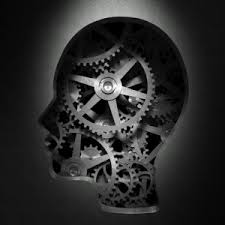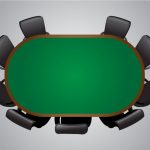People who know how I approach things will be able to tell you that I focus primarily on depth instead of breadth. However, this week’s column is going to be a bit different. Over the past couple of months, I’ve been laying out a way to think about the process of making adjustments and playing exploitatively in poker. Now we’re switching over to an entirely different topic: performance psychology. To start us off on this topic, I’m going to introduce a list of principles that I use to think about and teach about performance as regards poker specifically. I’m going to get into these principles more deeply with practical exercises and practical advice in the upcoming weeks, but for now, we’re going to have a brief overview.
1. It is within our power to improve.
A lot of people have this belief that their skill level at something is primarily a function of innate talent. In reality, it’s primarily a function of how much they have practiced and how effective their practice has been. A big part of the process of improving at poker is identifying something that you would like to get better at and designing exercises that will help you to practice it. Regarding this principle, we’re going to be focused on our ability to improve things like our mental stamina, our willpower and our ability to control our emotions.
2. Time spent improving at poker is not wasted.
I’m going to make the argument that time spent working at poker can make you a better person in all aspects of life. I fully believe that you can become more patient and more thoughtful with a certain type of approach to work and practice in poker. A lot of people use the phrase +life EV, and that means that something will improve you as a person and/or improve your quality of life. Studying and working at the performance side of poker is definitely something that carries over into the rest of your life.
3. Our problems in life are manifested in our poker.
Related to the second point above, poker can be a great way of working through things that seem to cause you problems in the rest of your life. If you pay attention, you’ll notice that the things that hold you back in life will often be what are holding you back in poker. This game we love does not always love us back, and it’s very good at bringing out the worst in people like procrastination, anxiety, anger and other issues. Poker provides you with a virtual sandbox for working on these issues since they will come up in your play and study over and over again. I contend that this is the perfect opportunity to work on these problems on a controlled environment.
4. The world is not just.
Poker provides you with a training ground for one of the ugliest but most basic truths about the reality we live in: The world is not just. Having to face this reality in such a brutal fashion over and over again will do a number on you emotionally, but it will also provide you with an opportunity that very few people are ever given. That is, you’ll have an opportunity to break away from feeling like the world should be fair instead of being how it is now. In short, you’ll have an opportunity to learn how to stop resisting reality and stop wishing things were different. Once you let go of this resistance, you’ll be much more effective at actually changing yourself and the world around you.
5. A lack of self-awareness is killer.
One of the most important things that we’ll look at in terms of improving at poker and in life is self-awareness. The ability to quickly assess your mental state and compensate for it appropriately is one of the key attributes of strategic leaders, and it will ultimately make you more effective in all aspects of your life. In poker specifically, self-awareness is often the difference between being a winning player or a losing player. If you’re looking to avoid tilt or minimize its effects on your game, then this is one of the key points to focus on.
6. You need to have a healthy relationship with failure.
A lot of people have an unhealthy reaction to failure, and that’s something that can hurt you in particularly large ways when it comes to poker. If your goal is to minimize tilt and be happier about your poker overall, then there are plenty of worse places to start than focusing on your relationship with failure. In general, failure can be important or unimportant, and you have a lot to gain by figuring out which is which. Even when failure is important, you have to figure out what to do about it. I personally promote the idea of using failure as a potential signal that something can be done better.
The Overall Goal
Our overall goal when it comes to focusing on performance in poker is to make more money. However, to achieve that goal, we’ll need to work towards a number of smaller goals. Instead of just saying, “work on X this week,” I’m going to give you some real exercises that you can do on your own and talk about with your peers to share insights. On top of that, I’m going to give you ideas to think about on your own so that you can develop your own exercises as well.
This Week’s Homework
Working on the mental game is uncomfortable for a lot of people for a lot of different reasons. To start off this series on performance, we’re going to be looking at what some of those reasons are and what you can do about them. For this week’s homework, you need to think about what types of things would keep you from working on poker with both the mental game and the not-so-mental game. Share your thoughts in the thread for this week’s post, and I’ll check in and make comments.
Submit your review | |







